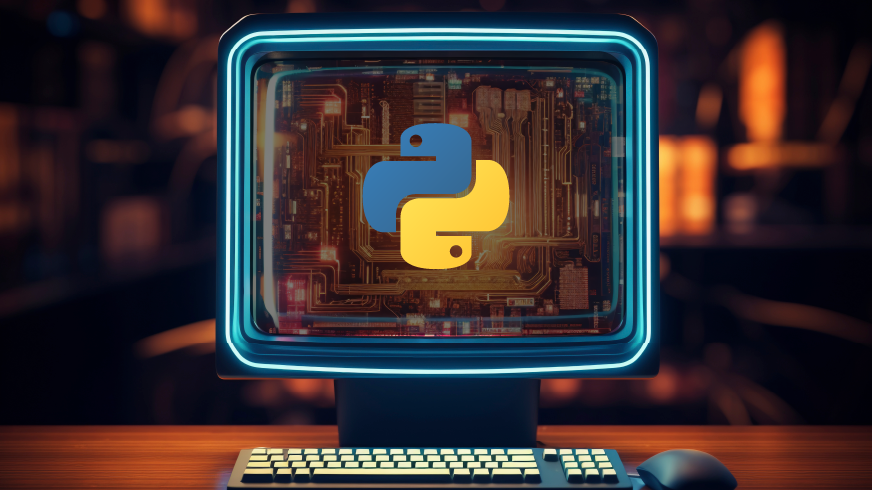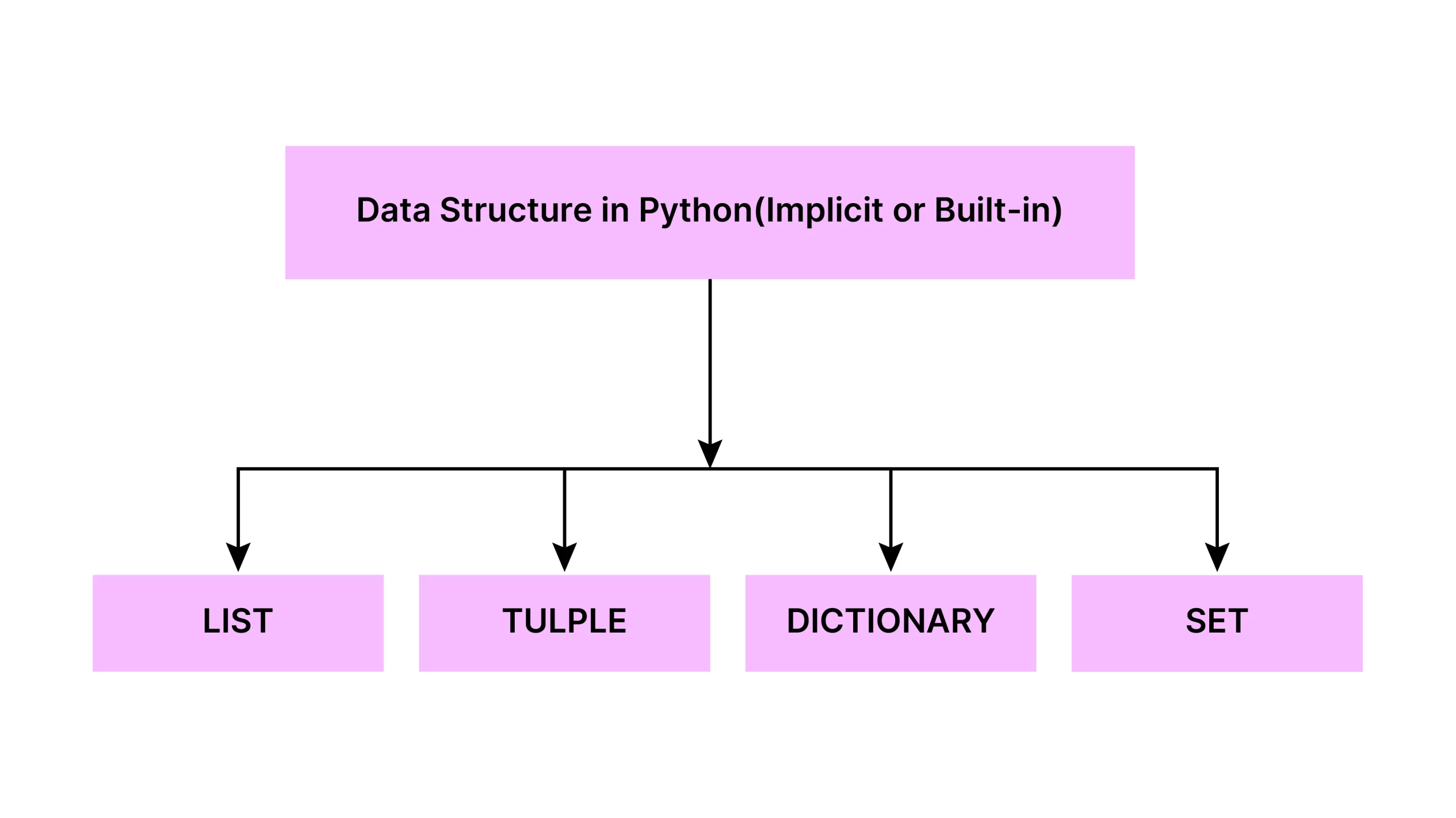 Technology peripherals
Technology peripherals
 AI
AI
 Comprehensive Guide to Python Built-in Data Structures - Analytics Vidhya
Comprehensive Guide to Python Built-in Data Structures - Analytics Vidhya
Comprehensive Guide to Python Built-in Data Structures - Analytics Vidhya
Introduction
Python excels as a programming language, particularly in data science and generative AI. Efficient data manipulation (storage, management, and access) is crucial when dealing with large datasets. We've previously covered numbers and strings and their memory representation (link to previous article). This article delves into Python's built-in data structures and the distinction between mutable and immutable objects.

Key Concepts
- Python's Strengths: Python's versatility shines in data science and generative AI applications.
- Data Structures Overview: This section explores built-in data structures: lists, arrays, tuples, dictionaries, sets, and frozen sets.
- Lists: Mutable, dynamic arrays capable of holding diverse data types; offering extensive manipulation methods.
- Arrays vs. Lists: Arrays are homogeneous (same data type) and memory-efficient; lists provide greater flexibility with mixed data types.
- Tuples: Immutable sequences; faster and more memory-efficient than lists; ideal for unchanging collections.
- Dictionaries: Key-value pairs; mutable and highly versatile; useful for tasks like counting, reversing, memoization, and sorting complex data.
Table of contents
- What are Python's Built-in Data Structures?
- A. Working with Lists
- List Literals
- List Creation
- Arrays in Python
- Arrays vs. Lists (Dynamic Arrays)
- Reversing Lists with Slicing
- List Traversal Methods
- Lists and Diverse Data Types
- Reversing Lists with
reverse() - The
reversed()Function - In-place Methods
- Replacing Lists vs. Modifying List Contents
- Copying Lists using Slicing
- Copying Lists using
copy() - Copying Lists using
deepcopy() - List Concatenation with the
- Generating Lists with
range() - List Comprehensions
- Nested
ifwith List Comprehensions - Flattening Nested Lists
- Converting Space-Separated Numbers to Integer Lists
- Combining Lists into a List of Lists
- Converting Lists of Tuples to Lists of Lists
- B. Working with Tuples
- Tuple Literals
- Lists vs. Tuples: A Comparison
- Performance: Speed and Memory
- Error Handling
- Returning and Assigning Multiple Values
- Tuple Creation using Generators
- The
zip()Function with Tuples
- C. Working with Dictionaries
- Dictionary Literals
- Nested Dictionaries (JSON)
- Adding Key-Value Pairs to Nested Dictionaries
- Removing Key-Value Pairs from Nested Dictionaries
- Dictionaries as Counters
- Inverting Dictionaries
- Memoized Fibonacci
- Sorting Complex Iterables with
sorted() - Defining Default Values with
.get()and.setdefault() - Merging Dictionaries with
** - Creating Dictionaries with
zip() - Dictionary Comprehensions
- Creating Dictionaries from Existing Dictionaries
- D. Working with Sets
- Set Literals
- Removing Duplicates from Lists using Sets
- Set Operations
-
isdisjoint(),issubset(),issuperset() - Set Comprehensions
- Operations on Frozen Sets
- Frequently Asked Questions
What are Python's Built-in Data Structures?
Data structures organize and store data for efficient access and manipulation. This article covers Python's built-in data structures: lists, arrays, tuples, dictionaries, sets, and frozen sets.

A companion Python notebook (link to notebook) serves as a quick syntax reference.
A. Working with Lists
List Literals
Lists are built-in Python data types storing items of various data types within square brackets [], separated by commas. They are dynamic arrays, meaning their size can change.
(The rest of the content would follow a similar structure, rephrasing sentences and using synonyms to achieve paraphrasing while maintaining the original meaning and keeping the image placement unchanged.)
The above is the detailed content of Comprehensive Guide to Python Built-in Data Structures - Analytics Vidhya. For more information, please follow other related articles on the PHP Chinese website!

Hot AI Tools

Undresser.AI Undress
AI-powered app for creating realistic nude photos

AI Clothes Remover
Online AI tool for removing clothes from photos.

Undress AI Tool
Undress images for free

Clothoff.io
AI clothes remover

AI Hentai Generator
Generate AI Hentai for free.

Hot Article

Hot Tools

Notepad++7.3.1
Easy-to-use and free code editor

SublimeText3 Chinese version
Chinese version, very easy to use

Zend Studio 13.0.1
Powerful PHP integrated development environment

Dreamweaver CS6
Visual web development tools

SublimeText3 Mac version
God-level code editing software (SublimeText3)

Hot Topics
 1385
1385
 52
52
 I Tried Vibe Coding with Cursor AI and It's Amazing!
Mar 20, 2025 pm 03:34 PM
I Tried Vibe Coding with Cursor AI and It's Amazing!
Mar 20, 2025 pm 03:34 PM
Vibe coding is reshaping the world of software development by letting us create applications using natural language instead of endless lines of code. Inspired by visionaries like Andrej Karpathy, this innovative approach lets dev
 Top 5 GenAI Launches of February 2025: GPT-4.5, Grok-3 & More!
Mar 22, 2025 am 10:58 AM
Top 5 GenAI Launches of February 2025: GPT-4.5, Grok-3 & More!
Mar 22, 2025 am 10:58 AM
February 2025 has been yet another game-changing month for generative AI, bringing us some of the most anticipated model upgrades and groundbreaking new features. From xAI’s Grok 3 and Anthropic’s Claude 3.7 Sonnet, to OpenAI’s G
 How to Use YOLO v12 for Object Detection?
Mar 22, 2025 am 11:07 AM
How to Use YOLO v12 for Object Detection?
Mar 22, 2025 am 11:07 AM
YOLO (You Only Look Once) has been a leading real-time object detection framework, with each iteration improving upon the previous versions. The latest version YOLO v12 introduces advancements that significantly enhance accuracy
 Best AI Art Generators (Free & Paid) for Creative Projects
Apr 02, 2025 pm 06:10 PM
Best AI Art Generators (Free & Paid) for Creative Projects
Apr 02, 2025 pm 06:10 PM
The article reviews top AI art generators, discussing their features, suitability for creative projects, and value. It highlights Midjourney as the best value for professionals and recommends DALL-E 2 for high-quality, customizable art.
 Is ChatGPT 4 O available?
Mar 28, 2025 pm 05:29 PM
Is ChatGPT 4 O available?
Mar 28, 2025 pm 05:29 PM
ChatGPT 4 is currently available and widely used, demonstrating significant improvements in understanding context and generating coherent responses compared to its predecessors like ChatGPT 3.5. Future developments may include more personalized interactions and real-time data processing capabilities, further enhancing its potential for various applications.
 Best AI Chatbots Compared (ChatGPT, Gemini, Claude & More)
Apr 02, 2025 pm 06:09 PM
Best AI Chatbots Compared (ChatGPT, Gemini, Claude & More)
Apr 02, 2025 pm 06:09 PM
The article compares top AI chatbots like ChatGPT, Gemini, and Claude, focusing on their unique features, customization options, and performance in natural language processing and reliability.
 How to Use Mistral OCR for Your Next RAG Model
Mar 21, 2025 am 11:11 AM
How to Use Mistral OCR for Your Next RAG Model
Mar 21, 2025 am 11:11 AM
Mistral OCR: Revolutionizing Retrieval-Augmented Generation with Multimodal Document Understanding Retrieval-Augmented Generation (RAG) systems have significantly advanced AI capabilities, enabling access to vast data stores for more informed respons
 Top AI Writing Assistants to Boost Your Content Creation
Apr 02, 2025 pm 06:11 PM
Top AI Writing Assistants to Boost Your Content Creation
Apr 02, 2025 pm 06:11 PM
The article discusses top AI writing assistants like Grammarly, Jasper, Copy.ai, Writesonic, and Rytr, focusing on their unique features for content creation. It argues that Jasper excels in SEO optimization, while AI tools help maintain tone consist




